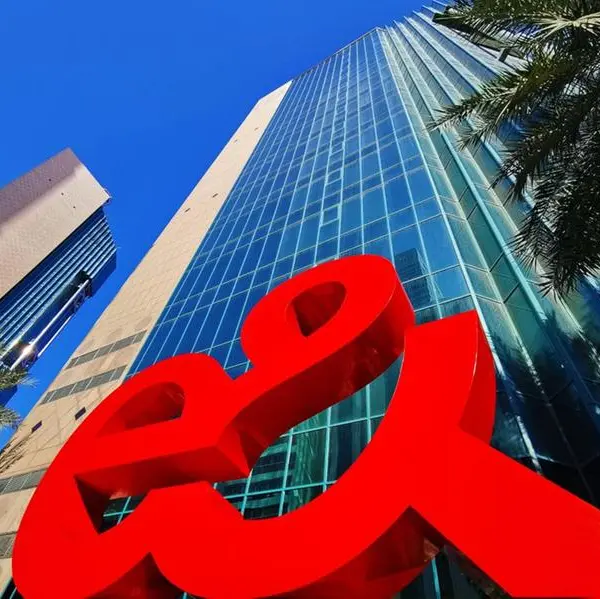PHOTO
Byblos Bank Headquarters, April 15, 2015: Byblos Bank issued today, in cooperation with the American University of Beirut through the Olayan School of Business, the results of the Byblos Bank/AUB Consumer Confidence Index for the second half of 2014.
The results show that the Byblos Bank/AUB Consumer Confidence Index improved marginally in July, declined in August and September, grew in October and November, and regressed in December 2014. The Index reached 45.5 points in November, its highest score since July 2012. The Index regressed by 9.8% in the third quarter to a monthly average of 32.2, and grew by 17% to an average of 37.6 in the fourth quarter of 2014. Further, the Index posted a monthly average of 34.9 in the second half of 2014, increasing by a modest 4.6% from the first half of the year.
Mr. Nassib Ghobril, Chief Economist and Head of the Economic Research & Analysis Department at the Byblos Bank Group, said "The repeated failure of the Lebanese Parliament to elect a President and the resulting institutional paralysis; the Lebanese Army's military confrontation with terrorist groups in the Bekaa in August and the ensuing abduction of more than 25 Lebanese military personnel; along with the persisting high level of political uncertainties in the country and wide spillovers from the Syrian crisis, represented the main factors that negatively affected the confidence of Lebanese consumers during the third quarter of 2014."
Mr. Ghobril added that several positive developments helped improve consumer sentiment in the fourth quarter: "On the political front, the countrywide crackdown on suspected terrorists by security forces and the overall improvement in security conditions, the launch by the Ministry of Public Health in November of a food safety campaign, and the announcement of a dialogue between the Future Movement and Hezbollah, gave some reprieve to wary consumers. On the economic front, the Ministry of Telecommunications' decision to reduce telecom tariffs by 30% and the pass-through to consumers of the 50% drop in global oil prices provided some relief to the strained budgets of households."
Despite the index's improvement in the fourth quarter, the results of the third and fourth quarters of 2014 remained consistent with the ongoing trend of low household confidence since the first quarter of 2012 and the persisting trend of stagnating consumer sentiment in the country. Indeed, the results of the third quarter of 2014 were the eighth lowest since the Index's inception, while the fourth quarter posted the twelfth-lowest quarterly reading in 30 quarters. Further, the second-half results constituted the Index's sixth-lowest level on a semi-annual basis.
The Byblos Bank/AUB Present Situation Index and the Byblos Bank/AUB Expectations Index increased in relative terms in the second half of 2014. But the analysis of the results reveals that the near-term expectations of consumers were generally lower than their views of their prevailing conditions during the second half of 2014, in line with results since the first half of 2012. This reflects consumers' still uncertain outlook and deep skepticism about the sustainability of some rare positive developments that took place, which raises alarms over the depth of their pessimism.
The results of the Byblos Bank/AUB Consumer Confidence Index for the second half of 2014 show that male consumers had a relatively higher level of confidence than their female counterparts; while consumers in the 21 to 29 year-old bracket posted a higher level of confidence than citizens in other age brackets during the covered period. Also, households with an income of USD 2,500 or more per month had a higher level of confidence than those earning less. Moreover, private sector employees had a higher level of confidence than public sector employees, the self-employed, the unemployed and housewives in the second half of 2014. In addition, consumers in the North posted the highest confidence level across administrative districts, or mohafaza, in the second half of 2014, followed by consumers in Mount Lebanon, the South, the Bekaa and Beirut. Further, Christian consumers had a higher level of confidence than those from other religious affiliations during the covered period, followed by Shiite, Sunni and Druze consumers.
The results of the full year show that consumer confidence improved in relative terms in 2014. The Index posted a monthly average of 34.1 in 2014, reflecting an increase of 17.6% from 29 in 2013 and constituting the first annual rise since 2009. However, the increase is also due to low-base effects and does not denote a reversal of trends, as the Index grew from a record low in 2013; while the 2014 results still constitute a drop of 65% from the peak year of 2009. Overall, political uncertainties and security related issues dominated consumers' concerns during the year. But other persisting issues such as the inability of authorities to satisfy citizens' basic needs, decaying public services, the weak rule of law, job insecurity, and economic stagnation resonated strongly among consumers.
"Consumer confidence has proven to be very sensitive to security developments and heightened political uncertainties, which, in turn, has a direct and adverse impact on economic activity. Therefore, and despite the increase in disposable income of consumers from the drop in oil prices and telecom tariffs, we expect economic activity to remain subdued over the first half of 2015 in the absence of significant developments or lasting measures to improve the confidence of Lebanese households" indicated Mr. Ghobril of Byblos Bank. He added: "Consumer sentiment remained at such low levels in 2014 that consumers require a positive political shock of the magnitude of the Doha Accord in order to restore their confidence to the levels of 2008, 2009 and 2010."
The Byblos Bank/AUB Consumer Confidence Index is a measure of the sentiment and expectations of Lebanese consumers towards the economy and their own financial situation. The Index is compiled, implemented and analyzed in line with international best practices and according to criteria from leading consumer confidence indices worldwide. It is composed of two sub-indices, the Byblos Bank/AUB Present Situation Index and the Byblos Bank/AUB Expectations Index. The first sub-index covers the current economic and financial conditions of Lebanese consumers, and the second one addresses their outlook over the coming six months. In addition, the data segregates the Index based on age, gender, income, profession, administrative district, and religious affiliation. The Index has been calculated on a monthly basis since July 2007, with January 2009 as its base month. It is based on a nationally representative survey of 1,200 face-to-face interviews with adult males and females living throughout Lebanon. The monthly field survey is conducted by Statistics Lebanon, a market research and opinion-polling firm.
For further information, please contact:
Nassib Ghobril
Chief Economist
Head of the Economic Research & Analysis Department
Byblos Bank Group
Beirut, Lebanon
Phone: (961) 1 338 100 ext. 0205
Fax: (961) 1 217 774
e-mail: nghobril@byblosbank.com.lb
© Press Release 2015




















